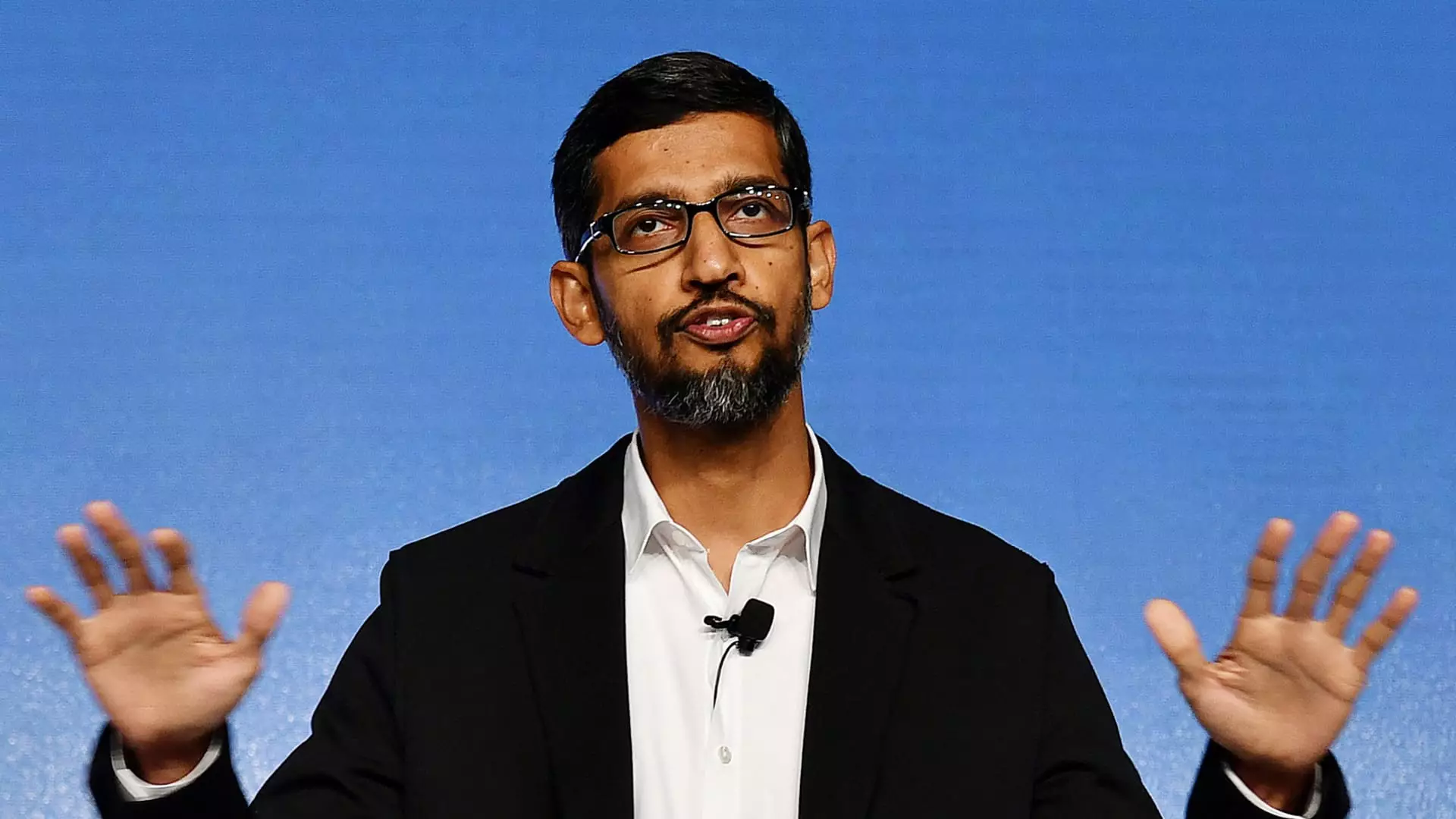The tech titan Google finds itself at the center of another contentious debate, not just over its external business dealings, but within the very fabric of its corporate identity. Recent insights reveal a tightening of internal policies regarding political discourse among employees, particularly leading up to the pivotal U.S. elections. These developments raise significant questions about the balance between maintaining a harmonious workplace and respecting the individual rights of employees to express their beliefs.
As American political tensions rise, Google executives have taken proactive measures to curb political discussions among employees on platforms like Memegen, a digital forum dedicated to sharing memes and employee interactions. In correspondence that has surfaced, these executives emphasized the importance of refraining from sharing political opinions and controversial topics, highlighting a potential clash between corporate governance and personal expression.
Google CEO Sundar Pichai underscored the company’s commitment to providing reliable information services, stating that employees should remain mindful of their roles as ambassadors of the brand. His memo articulates a desire to maintain neutrality, reinforcing the notion that Google’s products should serve a diverse audience without bias. However, the actual experiences of employees suggest a different narrative, one where voices are stifled under the umbrella of corporate policies.
Google’s recent restrictions mark an important cultural transformation within the organization. Historically, tech companies have fostered environments that encourage openness and discussion, but in light of new policies established as early as 2019, the atmosphere is shifting towards one of caution and restraint. The current guidelines stipulate that employees must avoid comments that could be perceived as offensive or detrimental, narrowing the scope within which employees can express political views or engage in discussions about social issues.
Critics of these policies argue that they could discourage healthy discourse and result in an oppressive environment, particularly for those who feel strongly about certain matters. Employees have voiced concerns that the broad nature of the restrictions could stifle legitimate conversations, thus hampering the company’s very identity as a progressive tech leader known for championing innovation and inclusivity.
Since the implementation of its stringent guidelines, Google has experienced backlash from employees who feel their rights to free speech are being curtailed. For instance, incidents where memes—often expressive and humorous—have been removed for supposedly crossing the newly established boundaries illustrate a struggle between a company’s mission and its employees’ rights to share their thoughts candidly.
Significant incidents included the company’s turbulent reaction to discussions surrounding Project Nimbus, a controversial contract with the Israeli government that sparked protests and dissatisfaction among employees. The actions taken against dissenters, such as the temporary shutdown of internal message boards, further highlight the challenges Google faces in balancing corporate objectives with employee advocacy.
Compounding these issues is the company’s commitment to employing artificial intelligence to monitor content flagged as violative, raising apprehensions about how algorithms could misinterpret nuanced human expressions. Critics warn that while technology can help manage content moderation, it can also lead to inaccuracies that further silence voices speaking out on crucial issues.
The latest guidelines for Memegen illustrate this reliance on AI technology, which is intended to automatically detect and eliminate political statements and personal opinions from the platform. As a result, employees are cautioned against expressing thoughts on matters not perceived as strictly relevant to their work, narrowing their scope of conversation significantly.
As we approach the future, Google’s approach to internal dialogue will remain a contentious issue. On one hand, there is an evident need to maintain professionalism and avoid disruptive debates; on the other, the right of employees to express their views cannot be overlooked. Navigating this delicate balance will be crucial as the company endeavors to foster an inclusive workplace while ensuring it does not alienate its core workforce.
While Google’s intentions to create a cohesive work environment are clear, a rigorous examination of the current policies suggests that they may result in further frustration among employees who wish to engage in meaningful conversations about the world around them. As the landscape of workplace communication evolves, the tech giant must reconsider its approach or risk leaving a segment of its vibrant workforce feeling unheard and undervalued.


Leave a Reply
You must be logged in to post a comment.